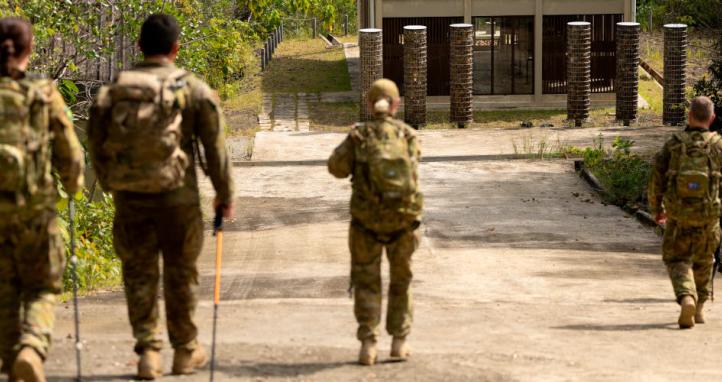It’s not what happens, but how we respond that determines success. Like most leaders I have a bias for action so, when given a task/problem I’m tempted to dive straight-in. But, rather than act on impulse, I’ve found we get better, more enduring results when I take a minute to understand the problem, take advice, confirm what’s right and make choices about risk. This is why Army has immediate-action drills to help regain the initiative and buy time for leaders to make decisions. So as a leader, take a minute before you respond, this is when we choose who we are and what’s important. Major General Matt Pearse
My most important leadership lesson is ‘People First’. This focus includes our people and their families. As an Army for the Nation, and in the Community, we must focus on recruitment and equally retention. To do this, our people must feel empowered and given the resources and time to do what is asked of them. I have found that people leave because they don’t respect their immediate supervisor or don’t feel valued. I challenge every leader to focus on genuinely caring for your people and their families as your priority; then we will achieve Army’s mission. Major General Susan Coyle
Paraphrasing The Art of Living by Epictetus, c. AD 55 – 135, leaders learn by adapting characteristics of people we admire most. Learning provides us options employing admired peoples’ manners, speech, and behaviour as our own. Epictetus writes that we all carry the seeds of greatness within us. But, in realising our own potential, we need focus points as example images of other peoples’ excellence. General Mattis extends Epictetus’s thinking, emphasising that reading enables our learning through others’ experiences, as a better way to do business, especially in our occupation where the consequences of incompetence are so final for our people. Major General Chris Field
Remember you are a steward. Success is passing the torch burning a little more brightly for your successor. Your legacy will be the people you have influenced and developed. They will remember the investment you make in them that sets them up for success. Amongst our people are the individuals that will one day occupy our positions – we have a responsibility to ensure they are prepared for the challenges of the next rank. Do this by setting priorities and managing time to create a sustainable tempo in an environment where people feel safe to bring forward problems. Brigadier Michael Say
Don’t go looking for no. You will be expected to take the initiative, lead and make good decisions, based on mission-type orders and higher commander’s intent two levels up…if in doubt, ask yourself the following 3 questions about the decision you are considering: (1) Is it in the best interests of our people, Defence and the mission? (2) Is it legally and morally right? (3) Am I willing to stand up and be accountable for my decision? If you answer ‘Yes’ to all 3, don’t ask for permission… You already have it… Just do it. Brigadier John Carey
‘Confidence in our people.’ There are many important leadership lessons that I have learnt throughout my career so choosing just one is difficult. These leadership lessons have come from some of our most junior soldiers through to our most senior officers. I have been known to be a perfectionist at times so one of the most valuable lessons was to not let my passion for excellence destroy my compassion for our soldiers. Whilst I strive for my soldiers to have confidence in my own ability, I now realise that there is more power in assisting our soldiers to have confidence in their own ability. Warrant Officer Kim Felmingham
I would have to say my most important leadership lesson would have to be a package of; Fully know and understand yourself, Know your people completely, Listen and Don’t be afraid to ask for advice. As a Junior NCO I was a bull at a gate, I needed to be first, I made mistakes because I didn’t listen or I thought I knew better. It was reinforced to me the importance of your people and a team first focus, by understanding your teams strengths and weaknesses you will be more successful and you will retain your team, but also enable them to reach their potential and have successful careers. Warrant Officer Grant McFarlane









